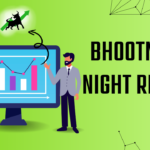In the fast-paced world of software development, the need for efficiency and automation has never been more critical. With DevOps focusing on collaboration and continuous improvement, we’ve entered a new era filled with innovative tools and practices. At the heart of this evolution are DevOps bots—intelligent agents designed to interact with various tools and platforms. They play a pivotal role in streamlining operations, making querying information easier than ever. So, how do these bots empower developers and operations teams? What types of queries can they handle? And how can they enhance your workflow? Let’s dive into the fascinating world of DevOps bot queries.
What Are DevOps Bots?
DevOps bots are automated agents that facilitate communication and execution across the software development lifecycle. Imagine having a programmable assistant that can perform tasks, gather information, and provide insights based on your commands. These bots serve as personal AI helpers, optimizing processes and enhancing productivity within the DevOps ecosystem.
Key Features of DevOps Bots
- Automation: They automate routine tasks, reducing manual effort.
- Integration: Bots can connect with various tools, creating a cohesive workflow.
- Real-Time Data Access: They offer immediate access to important metrics and insights.
Why Use DevOps Bots?
The benefits of incorporating DevOps bots into your development process are substantial. Here’s why they should be a part of your toolkit:
Increased Efficiency
By automating repetitive tasks, DevOps bots allow teams to focus on more strategic work. This not only speeds up processes but also reduces the chances of burnout among team members.
Improved Collaboration
DevOps bots enhance communication and information sharing between teams. They ensure that everyone is on the same page, minimizing misunderstandings and promoting a collaborative environment.
Real-Time Insights
With immediate access to critical data, teams can make faster, informed decisions. Whether it’s monitoring server health or tracking deployment status, these insights are invaluable.
Reduced Errors
By automating tasks, bots minimize the risk of human error, leading to more reliable outcomes. This is especially important in high-stakes environments where precision is critical.
Enhanced Productivity
Bots streamline workflows, enabling teams to achieve more with less effort. This boost in productivity can lead to quicker delivery cycles and improved time-to-market for new features.
Types of DevOps Bot Queries
DevOps bots can handle a diverse array of queries, covering various aspects of development and operations. Here’s a look at some common query categories:
Infrastructure Queries
- “What’s the status of my servers?”: Quickly checks the health of servers.
- “How much storage space is available?”: Provides information on available resources.
- “What’s the CPU usage on this instance?”: Monitors system performance.
- “Provision a new server with these specifications.”: Automates server setup.
- “Scale this service to handle increased traffic.”: Adjusts resources based on demand.
Code Queries
- “Find all files modified in the last 24 hours.”: Tracks recent changes for review.
- “Check for code style violations.”: Ensures code quality and consistency.
- “Run automated tests on this branch.”: Facilitates testing workflows.
- “Deploy this application to staging.”: Simplifies the deployment process.
- “Roll back to the previous version.”: Helps revert changes if necessary.
Deployment Queries
- “What’s the current deployment status?”: Provides updates on deployment progress.
- “What version is running on production?”: Confirms the live version of applications.
- “Deploy this release to production.”: Initiates the deployment process.
- “Trigger a blue-green deployment.”: Automates deployment strategies for zero downtime.
- “Monitor application performance after deployment.”: Checks for issues post-deployment.
Issue Tracking Queries
- “List all open bugs assigned to me.”: Keeps track of personal tasks.
- “Create a new bug report with these details.”: Streamlines the reporting process.
- “Assign this bug to another developer.”: Enhances task management.
- “Update the status of this bug.”: Keeps everyone informed on progress.
- “Search for bugs related to a specific feature.”: Facilitates focused troubleshooting.
Monitoring Queries
- “What are the current system metrics?”: Displays live system performance data.
- “Are there any alerts triggered?”: Checks for potential issues.
- “Identify performance bottlenecks.”: Helps optimize system performance.
- “Generate a report on resource usage.”: Provides insights into resource allocation.
- “Set up automated alerts for critical events.”: Ensures timely responses to issues.
Benefits of Using DevOps Bots
The impact of DevOps bots extends far beyond automation. Here are some of the significant benefits they offer:
Faster Issue Resolution
DevOps bots can quickly identify and resolve issues, reducing downtime and improving application availability. With real-time monitoring and alerting, teams can respond to problems before they escalate.
Improved Collaboration
By facilitating seamless information sharing across teams, bots foster better communication and collaboration. They help break down silos, making it easier for teams to work together towards common goals.
Reduced Manual Work
Automation allows developers and operations teams to focus on more strategic tasks, enhancing their job satisfaction and productivity. This reduction in manual work can also lead to fewer errors.
Increased Efficiency
Bots optimize workflows, resulting in faster delivery cycles and quicker time-to-market for new features. This competitive edge is crucial in today’s fast-paced development environment.
Enhanced Security
DevOps bots can automate security checks, ensuring compliance with industry standards. By continuously monitoring for vulnerabilities, they help maintain a secure development environment.

Choosing the Right DevOps Bot
With numerous options available, selecting the right DevOps bot can be a daunting task. Here are some factors to consider:
Functionality
Evaluate the features and capabilities that are most important for your workflow. Consider what specific tasks you want the bot to handle.
Integration
Ensure that the bot integrates seamlessly with your existing tools and platforms. A good bot should enhance your current processes without adding complexity.
Scalability
Choose a bot that can handle your current workload and scale with your team’s growth. This ensures that your investment will pay off in the long run.
Security
Check for robust security measures to protect sensitive data. The bot should comply with industry standards and best practices.
Ease of Use
Opt for a bot that is easy to configure and use, even for non-technical users. A user-friendly interface can facilitate wider adoption across teams.
Popular DevOps Bots
Several popular DevOps bots are available today, each offering unique features and capabilities. Here are a few noteworthy options:
- Slack Bot: A versatile bot that integrates with various DevOps tools for automated tasks and notifications, facilitating team communication.
- GitHub Bot: A powerful bot for managing pull requests, issues, and other workflows within GitHub, streamlining development processes.
- Azure DevOps Bot: Designed for automating tasks and workflows within the Azure DevOps platform, making it easier to manage projects.
- Jenkins Bot: A bot for automating Jenkins pipelines and managing build and deployment processes, essential for CI/CD practices.
Conclusion
Devops bot queries are transformative tools that significantly enhance efficiency, collaboration, and productivity within software development and operations teams. By automating repetitive tasks, providing real-time insights, and simplifying information retrieval, bots empower teams to achieve more with less effort. As the DevOps landscape continues to evolve, DevOps bots are poised to play an increasingly critical role in shaping the future of software development and operations.
FAQs About devops bot queries
Q: Are DevOps bots only for large organizations?
A: No, DevOps bots can benefit organizations of all sizes. Even small teams can leverage automation to improve efficiency and streamline their workflows.
Q: How do I build my own DevOps bot?
A: Many platforms and libraries provide resources for building custom bots. Tools like Python, Node.js, and AWS Lambda can be used to create bots tailored to specific needs.
Q: Are DevOps bots replacing human jobs?
A: DevOps bots are designed to augment human capabilities, not replace them. They streamline tasks, allowing humans to focus on more creative and strategic aspects of their work.
Q: What types of tasks can DevOps bots automate?
A: Bots can automate a variety of tasks, including deployment, monitoring, issue tracking, and resource management.
Q: How do I choose the right DevOps bot for my team?
A: Consider factors like functionality, integration with existing tools, scalability, security, and ease of use when selecting a DevOps bot.














